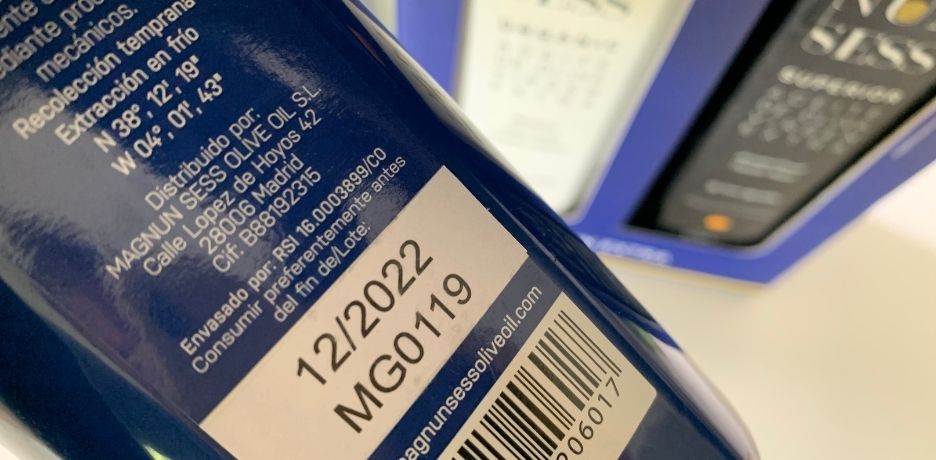
Does extra virgin olive oil expire?
How many times have you thought of reserving an aove for a special moment? Well, we can tell you that this is a mistake. Although olive oil does not have an expiration date, it does have a best-before date and, after 12 months from its bottling, it can lose its organoleptic qualities, thus reducing its quality.
How many times have you heard about the expiration date of olive oil? How many times have you wondered when you should consume an olive oil? And most importantly, how many times have you thought of reserving an olive juice for a special moment? In this post we are going to solve all these doubts that, like you, arise for the consumers of this perishable product so important for the practice of a healthy diet.
To begin with, we will tell you that extra virgin olive oil does not have an expiration date as such. However, this product is commercialized with a best-before date.
This best-before date depends mainly on several aspects:
- The variety with which the extra virgin olive oil is made: there are varieties that are much more stable than others, for example, Picual.
- The state of ripeness of the fruit: the greener the fruit is harvested, the more resistant to oxidation the olive juices obtained from it will be. This is due to the high polyphenol content of early harvest extra virgin olive oils.
- The way in which it has been stored: it is very important to store the oil in optimum conditions, i.e. away from its natural enemies – light, air and heat.
- Filtering: just like the juice of any other fruit, olive oil contains natural particles in suspension that appear when olive juice is bottled directly without being filtered. These do not represent any health hazard, but they do help to shorten the life of the oil.
How long do oils retain their properties?
Extra virgin olive oils usually maintain all their nutritional and organoleptic properties for up to 12 months after bottling, provided they are kept in optimum conditions.
After this time, these oils can be consumed without any risk to health, as guaranteed by the Spanish Agency for Food Safety and Nutrition, but they will lose their organoleptic qualities and their quality will decrease.
Moreover, it is very likely that, after 1 year, they will present some defect. The most common is “rancidity”, caused by oxidation of the product after having been in deep contact with air. This is very typical, since in many cases we do not close the bottle cap properly, allowing air to enter the bottle.

In addition to the best-before date, some brands also include on their label the date the oil was bottled. This provides consumers with valuable information that will help them to calculate the shelf life of the product they have purchased.
Our evoos resist the passage of time very well
Our extra virgin olive oils are obtained from Picual olives, fruits that provide very stable juices due to their high composition of polyphenols – molecules that make up the unsaponifiable fraction of the oils – which act as protectors against oxidation, but also oleic acid.
Thanks to these natural antioxidants, which are more abundant in early oils than in those made from veraisoned olives, consumers can be sure that they will be consuming a evoo in perfect condition, even a year after it is obtained.
The evoos provided by the Picual olive are very stable, so they resist well over time.
This is one of the reasons why extra virgin olive oils obtained from Picual olives are highly appreciated, as well as well known, by a large part of consumers around the world. Especially among those who do not consume large quantities or are looking for oils that stand the test of time.
Taste them and tell us your experience!

